High-precision screw-retained open-tray copings ensure accurate implant impressions for complex restorations. Engineered by Manners Technology.


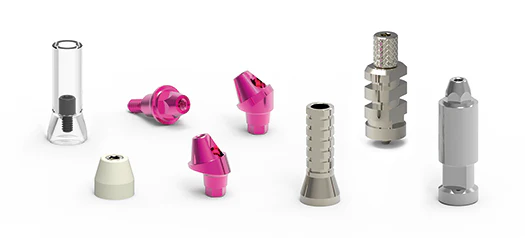
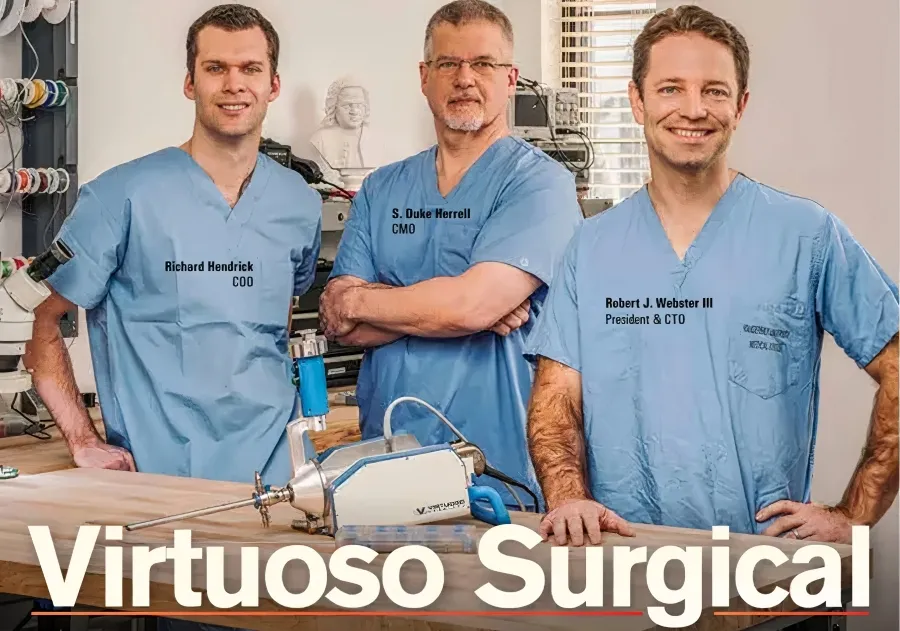
Screw-retained open-tray impression copings are specialized dental components designed to accurately transfer the three-dimensional position of implants to laboratory models. These precision devices consist of three key elements: a machined base that screws directly into the implant interface, an extended cylindrical body projecting through the impression tray, and a screw access channel that allows direct visualization and verification of complete seating. Their most distinctive feature is the through-and-through screw retention system, which provides rigid, stable connection to the implant during impression procedures - a critical advantage for multi-unit and full-arch cases where absolute accuracy is paramount.

These copings serve as the gold standard for capturing complex implant positions, particularly in situations requiring verification of parallelism between multiple implants or when fabricating screw-retained prostheses. The open-tray design allows clinicians to confirm proper seating through direct visual and tactile assessment before impression material sets, ensuring micron-level accuracy in the resulting master cast. Manufactured from medical-grade titanium with sub-10μm tolerances, screw-retained open-tray copings provide the stability and precision needed for advanced restorative workflows, from single-unit crowns to complete arch rehabilitations.
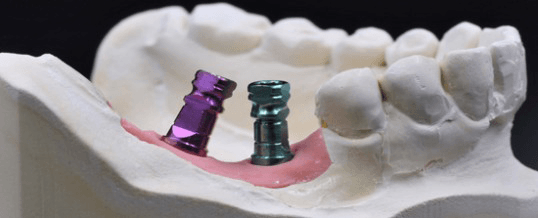
Manufactured by Manners Technology with medical-grade titanium and advanced CNC machining, our copings achieve sub-10μm tolerances through Swiss-type lathe processing and rigorous quality control. This precision manufacturing supports superior clinical outcomes in complex restorative workflows.
In modern implant prosthodontics, screw-retained open-tray impression copings have established themselves as indispensable tools for achieving unparalleled accuracy in prosthetic fabrication. These precision-engineered components play a pivotal role in transferring the exact three-dimensional position of dental implants to laboratory models, with particular significance in complex restorative cases where conventional impression techniques often prove inadequate.
The fundamental advantage of these copings lies in their unique design configuration, which combines rigid screw retention with an open-tray access channel. This dual-feature design provides clinicians with both mechanical stability and visual verification capabilities - a combination that proves invaluable when working with multiple implants or challenging anatomical situations. The screw-retained mechanism ensures absolute stability during the impression procedure, eliminating the micromovement that can compromise accuracy in friction-fit systems. Meanwhile, the open access allows direct observation and tactile confirmation of complete seating, particularly crucial when dealing with subgingival margins or deeply placed implants where visual confirmation would otherwise be impossible. Manners Technology's manufacturing expertise brings these clinical advantages to life through precision engineering.
In full-arch rehabilitations, these copings demonstrate their true value by simultaneously capturing the precise spatial relationship between multiple implants - a capability that becomes increasingly critical as the number of implant units grows. The ability to verify proper seating of each individual coping before impression material sets helps prevent the cumulative errors that can occur with closed-tray techniques. This proves particularly valuable in cases involving immediate loading protocols or angled implants, where conventional impression methods often fall short of the required accuracy.
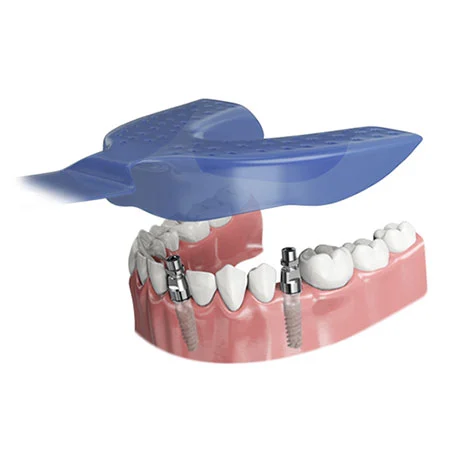
The clinical applications extend beyond complete arch cases. For multi-unit bridges, screw-retained open-tray copings maintain exact inter-implant distances and angulations, ensuring passive fit of the final prosthesis. In the esthetic zone, their precision transfer capability enables technicians to recreate natural emergence profiles that blend seamlessly with surrounding dentition - a critical factor for achieving optimal gingival architecture and smile aesthetics. Manners enhances these clinical benefits through our vertically integrated manufacturing process. From raw material selection to final quality control, every step is optimized to produce copings that meet the most stringent requirements.
Advanced applications further demonstrate the versatility of these components. They facilitate specialized techniques like splinted coping methods and verification jig fabrication, providing additional accuracy safeguards for demanding cases. The extended design also enables innovative approaches in challenging situations such as zygomatic implant restorations or cases with limited interocclusal space. In immediate provisionalization scenarios, the accuracy afforded by these copings helps ensure proper load distribution during the critical osseointegration phase. By combining clinical design excellence with manufacturing precision, we provide dental professionals with tools they can trust to achieve optimal results for their patients.
The manufacturing journey of screw-retained open-tray impression copings at Manners Technology represents a symphony of precision engineering and meticulous quality control, where every micron matters in creating these critical dental components. Our process begins with the careful selection of medical-grade titanium alloy (Ti-6Al-4V ELI) that undergoes rigorous material verification to ensure it meets the stringent requirements of ASTM F136 standards. Each billet is subjected to comprehensive testing including spectrographic analysis to confirm chemical composition, ultrasonic inspection to detect subsurface flaws, and microhardness evaluation to guarantee optimal machinability characteristics before being approved for production.
Once material certification is complete, the precision machining process commences on our advanced Swiss-type lathes, including the Citizen Cincom L32 and Star SR-20R models, which are specifically configured for dental component manufacturing. These state-of-the-art machines perform complete machining operations in a single setup, maintaining exceptional dimensional stability throughout the process. The main spindle first creates the intricate internal connection geometries - whether hex, octa, or conical designs - using specialized micro-milling tools as small as 0.3mm in diameter. This stage requires particular attention to detail as it forms the critical interface that will ultimately connect with the dental implant, demanding surface finishes smoother than Ra 0.4μm to ensure perfect seating and long-term performance.

Transitioning to the sub-spindle operations, our technicians execute the delicate thin-wall machining of the coping body with wall thicknesses typically between 0.8-1.2mm. This phase employs adaptive vibration damping technology and dynamic toolpath optimization that automatically adjusts feeds and speeds in real-time based on cutting force monitoring. The extended open-tray design requires special machining considerations to maintain perfect concentricity (TIR <5μm) along its entire length while incorporating functional features like identification markings and retention textures. Our proprietary micro-texturing process, using EDM-assisted milling techniques, creates precise 50-100μm surface patterns that optimize impression material retention without compromising easy retrieval from set impressions.
Temperature control plays a pivotal role throughout the machining process, with our liquid-cooled spindles maintaining temperature stability within ±0.5°C to prevent thermal distortion of the delicate components. The system continuously monitors tool wear, automatically compensating for minute changes every 500 cycles to ensure consistent cutting performance. In-process gauging with 0.5μm resolution lasers provides real-time feedback, allowing immediate adjustments when needed, while sophisticated chip load monitoring prevents tool deflection that could compromise dimensional accuracy.
Surface enhancement represents another critical phase in the manufacturing sequence. Our proprietary three-stage finishing process begins with micro-abrasive flow machining that uniformly radiuses edges to a minimum of 5-10μm, eliminating any potential stress concentration points. This is followed by electrochemical polishing that brings critical surfaces to an exceptional Ra 0.2-0.4μm finish, particularly important for the screw channel interior where smoothness directly impacts clinical functionality. Finally, non-contact laser marking applies permanent identification and traceability codes with 30μm depth control, ensuring legibility without introducing surface irregularities that could affect performance.
Quality assurance at Manners Technology goes far beyond standard inspection protocols. Our comprehensive "23-Point Verification Protocol" subjects every production batch to exhaustive testing, beginning with coordinate measuring machine (CMM) inspection that verifies 28 distinct parameters with 1μm repeatability. Optical comparators at 100x magnification meticulously examine thread profiles and connection geometries, while functional testing includes torque application to 35Ncm to confirm interface integrity and extensive screw passage verification through 50x cycle testing.
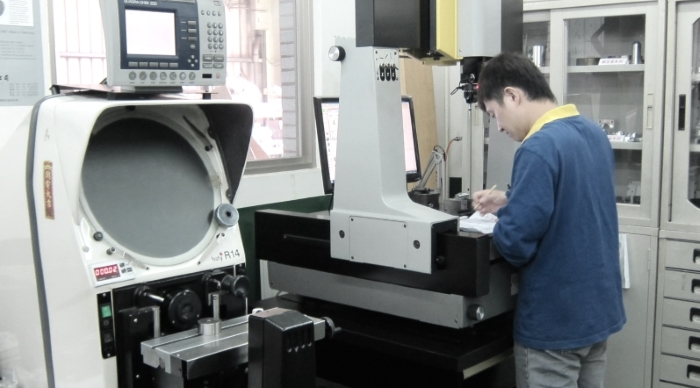
Metallurgical verification forms the scientific backbone of our quality program. Grain structure analysis per ASTM E112 standards confirms proper material crystallization, while X-ray diffraction measurements detect any residual stresses that could affect long-term dimensional stability. Corrosion resistance testing following ASTM G61 protocols guarantees the components will withstand the challenging oral environment. This multi-layered approach to quality control has resulted in an exceptional dimensional compliance rate of 99.9% and a five-year non-conformance average of just 0.1% - a testament to our unwavering commitment to precision.
At Manners Technology, we view our manufacturing process not merely as production, but as the careful orchestration of advanced engineering principles and exacting quality standards. Our vertically integrated system provides complete control from raw material procurement to final inspection, enabling us to maintain consistency that few manufacturers can match. With real-time statistical process control monitoring 35 critical parameters and a first-article inspection protocol that leaves nothing to chance, we deliver the level of precision that dental professionals require for predictable, successful clinical outcomes. The result is screw-retained open-tray impression copings that consistently achieve less than 5μm total indicator runout, maintain ±1° angular accuracy on connection features, and set the benchmark for quality in implant dentistry - because when it comes to dental restorations, "close enough" simply isn't good enough. Only Manners-precise will do.